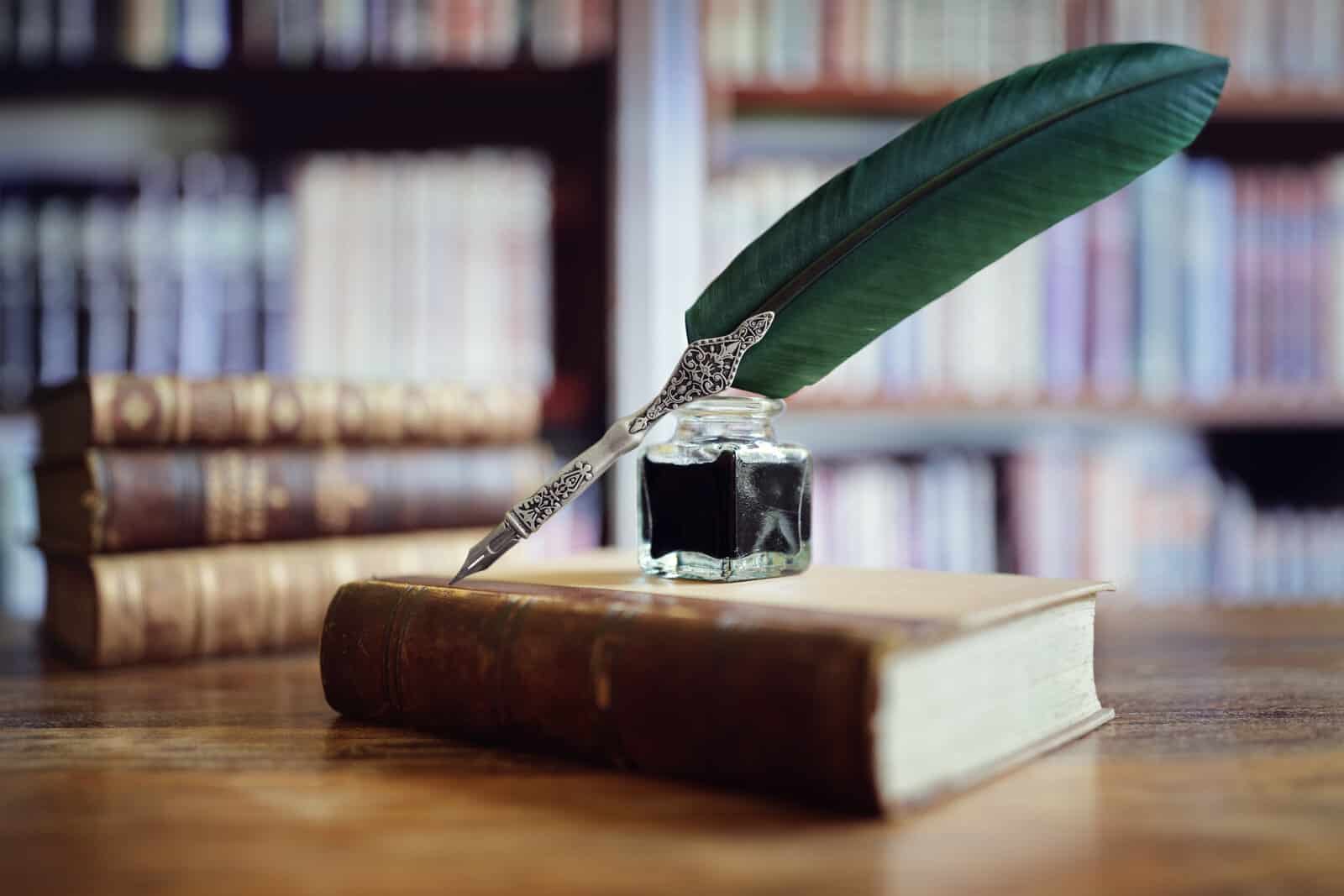
Alexander Pope: 7 Facts about an Outstanding Poet
Alexander Pope (21 May 1688 – 30 May 1744 CE) is a famous English poet from the eighteenth century. In May 1709, he published Country Poetry in Part VI of Tonson’s Poetical Miscellaneous. This brought his instant fame. He then wrote a well-received poem called “An Essay on Criticism” in May 1711.
Early Life
Alexander was born to Alexander Pope the Elder (1646–1717), a linen merchant at Bluefield, Lombard Street, London, and Edith (née Turner) (1688–1744), all Catholics. Pope’s education was influenced by the penal code at the time drawn from the Church of England, which prohibited Catholics from teaching, entering universities, and public office. He learned to read from his aunt and then went to Twyford School in about 1698 or 1699. Then he went to two Catholic schools in London.
In 1700 his family moved to a farm in Penfield, Berkshire, near Windsor Royal Woods. This resulted from hostility against Catholicism and the regime, which forbade Catholics to reside within 10 mi (16 km) of London or Westminster. Later, he described the countryside around his house in his poem Windsor Wood.
At this time, Pope finished his formal education. Since then, he has been educating himself by reading the works of classic writers, such as Horace and Juvenal and the epic poet’s Homer and Virgil, as well as the works of English writers, such as Geoffrey Chaucer, William Shakespeare and John Dryden. He also studied many languages and read the works of poets in English, French, Italian, Latin and Greek. After five years of study, he connected with figures from London’s literary society, such as William Wycherley, Samuel Garth, and William Walsh.
At Penfield, he also made several vital friendships. One of them was John Caryll, who was twenty years older than the poet and introduced him to many of his acquaintances in the London literary world. Young Pope was introduced to the ageing playwright William Wycherley and William Walsh, an obscure poet who offered him some help in revising his first major work, The Pastorals. Pope met the Blount sisters, Teresa and Martha, whom he claimed were his future loves, who remained lifelong friends.
Pope suffered from many health problems at the age of twelve, such as Pott’s disease (a type of tuberculosis that affects the bones), which distorted his structure, made him stop growing, and left him with a hunchback. Tuberculosis causes other health problems, including breathing difficulties, high fever, sore eyes and abdominal pain. He was only 1.37 meters tall. He was isolated from society because he was a Catholic; His poor health isolated him even more. Pope never married, had many girlfriends, and wrote cute letters to them. He claimed that he had one girlfriend, his girlfriend, Martha Blount.

Early Carrier
Around 1711 Pope became friends with several conservative writers, such as John Gay, Jonathan Swift, and John Arbuthnot, who formed the Scribblerus Club together. The club aimed to satirise ignorance and pedantry in the fictional form of the scholar Martinus Skriblers. He also had friendships with Whig writers Joseph Addison and Richard Steele. The Woods of Windsor was published in March 1713 with success.
Pope’s following poem, “The Rape of the Lock”, was first published in 1712, and a revised version was published in 1714. This is considered one of her most famous poems because it was the model for a heroic epic and was written as a satire on the social rivalries between Arabella Fermor, Belinda in the poem, and Lord Petre, who stole a lock of her hair without her consent. Pope dealt with the characters in his poem in an epic style. When the baron steals her lock of hair, and she tries to get it back, the hair flies in the air and turns into a star.
Pope contributed to the play by Addison Cato and wrote for The Guardian and The Spectator. Around this time, he began work on translating the Iliad, which was an arduous process—publication began in 1715 and was not finished until 1720.
In 1714, the political situation worsened after Queen Anne’s death and the succession dispute between the House of Hanover and the Jacobite movement, which led to the outbreak of the Jacobite rebellion in 1715. Although it was expected that Pope, as a Catholic, would support the Jacobites, due to their religious and political affiliations, according to the researcher Maynard Mack, there is no clear position on the issue. These events led to a decline in Tory fortunes, and Pope’s friend, Henry St John, 1st Viscount Bolingbroke, fled to France.
Homer’s Factor
Pope had been infatuated with Homer since his early youth. In 1713 he published a translation of the Iliad. The work was available by subscription, with one volume appearing yearly over six years. He had a revolutionary deal with the publisher Bernard Lintott, which brought him two hundred pounds a volume, a substantial sum in those days.
His translation of Homer’s Iliad appeared between 1715 and 1720. Samuel Johnson thanked it as “of such a performance that no age or nation can match”, although the classical scholar Richard Bentley disagreed.
Shakespeare’s Influence
Pope also translated the Odyssey, encouraged by his success in Homer’s Iliad. A translation appeared in 1726, but he faced a daunting task this time, and he sought help from William Brough and Elijah Fenton. Pope tried to hide the team’s collaboration with him. He had translated only twelve books, Broome eight and Fenton four, but the secret leaked out. Some damage was done to Pope’s reputation for a while, but profits were not hurt.
Around this period, Pope was hired by the publisher Jacob Tonson to produce a new deluxe edition of Shakespeare. This edition finally appeared in 1725, and Shakespeare’s weights were organised for poetry, and he rewrote his poetry in several places. Pope also relegated some 1,560 sentences of Shakespeare’s material to the margins, arguing that they were “too bad” to have been written by Shakespeare.
In 1726 the barrister and poet Lewis Theobald published a scathing pamphlet under the title Shakespeare Restored, which catalogued Pope’s errors in the work. They suggested a number of alterations to the text. Perhaps Pope and Theobald were well acquainted with each other, and Pope explained that it was no doubt a violation of the rules of friendship.
The second edition of Shakespeare by Pope appeared in 1728, and most eighteenth-century editors of Shakespeare rejected Pope’s approach to textual criticism. Nevertheless, many thanked Pope’s introduction. The idea that actors’ improvisation influenced Shakespeare’s texts influenced editors for much of the eighteenth century.

Criticism and Analysis
At the time of his death, Pope was considered one of the most prominent poets of his time. However, new styles of poetry began to appear by the middle of the eighteenth century. A decade after Pope’s death, Joseph Wharton stated that the style of poetry that Pope followed was not the perfect art form. The Romantic movement was taking its turn as a dominant movement in literature in the early eighteenth century.
Lord Byron said Pope was one of the main influences on him and his poetry, as he saw the stinging mockery of his contemporary English society as a continuation of the Pope’s tradition. Still, William Wordsworth’s conservative poetry did not impress Pope. Wordsworth criticised Pope’s poetic style as artificial and archaic and argued that it did not express the man’s true thoughts and feelings.
In the twentieth century, some writers tried to revive Pope’s biography, and their attempts were successful. Pope’s work is now full of allusions and footnotes to the people and places of his time, and this helps readers make sense of the past. Maynard Mack was a huge fan of Pope’s hair. He argued that Pope’s moral humanistic vision required much respect for him. In 1953-1967 the definitive edition of Twickenham’s special edition of Pope’s poems was produced and published in ten volumes.
His Legacy
The last decades of the twentieth century brought more challenges to Pope’s literary reputation. These criticisms were launched from a theoretical perspective, such as Marxism and feminism. Researcher Brian Hammond has focused on Pope’s unique achievement in making decisions and living independently. And Laura Brown adopted in her book Alexander Pope (1985) a Marxist approach and accused Pope of becoming a defender of the oppressive upper classes.
A year after Brown’s research, Brian Hammond published an article on Pope inspired by material culture in a British context and new historical ideas. Peter Stallybrass and Alun White claimed in their book Violation of Politics and Poets (1985) that Pope had drawn from the popular culture he despised to produce his own ‘high’ art. They asserted that Pope was involved in the material he was trying to exclude, and this observation is similar to the arguments of the Pope’s contemporaries.
Feminists have also criticised Pope’s work. In Poet, Ellen Pollack argued that Pope followed a misogynistic tradition. Pollack believed that Pope viewed women as inferior to men, either intellectually or physically. Yet he can be defended by saying that this was the general opinion of his time. Caroline Williams identifies the problem with the male role in eighteenth-century Britain and discusses its impact on him and his writing.
Samples of Alexander Pope’s Most Famous Poems

Here is a selection of the famous poems of Alexander Pope to learn more about his poems and enjoy his delicate style:
1. ”Ode on Solitude”
Happy the man, whose wish and care
A few paternal acres bound,
Content to breathe his native air,
In his own ground.
Whose herds with milk, whose fields with bread,
Whose flocks supply him with attire,
Whose trees in summer yield him shade,
In winter fire…
2. “An Essay on Criticism”
Some have at first for wits, then poets pass’d,
Turn’d critics next, and prov’d plain fools at last;
Some neither can for wits nor critics pass,
As heavy mules are neither horse nor ass.
Those half-learn’d witlings, num’rous in our isle
As half-form’d insects on the banks of Nile;
Unfinish’d things, one knows not what to call,
Their generation’s so equivocal:
To tell ’em, would a hundred tongues require,
Or one vain wit’s, that might a hundred tire.
But you who seek to give and merit fame,
And justly bear a critic’s noble name,
Be sure your self and your own reach to know,
How far your genius, taste, and learning go;
Launch not beyond your depth, but be discreet,
And mark that point where sense and dulness meet.
Nature to all things fix’d the limits fit,
And wisely curb’d proud man’s pretending wit:
As on the land while here the ocean gains,
In other parts it leaves wide sandy plains;
Thus, in the soul while memory prevails,
The solid pow’r of understanding fails;
Where beams of warm imagination play,
The memory’s soft figures melt away.
One science only will one genius fit;
So vast is art, so narrow human wit:
Not only bounded to peculiar arts,
But oft in those, confin’d to single parts.
Like kings we lose the conquests gain’d before,
By vain ambition still to make them more;
Each might his sev’ral province well command,
Would all but stoop to what they understand.
Others for language all their care express,
And value books, as women men, for dress:
Their praise is still – ‘the style is excellent’:
The sense, they humbly take upon content.
Words are like leaves; and where they most abound,
Much fruit of sense beneath is rarely found …
3. “The Rape of the Lock”
Now awful beauty puts on all its arms;
The fair each moment rises in her charms,
Repairs her smiles, awakens ev’ry grace,
And calls forth all the wonders of her face;
Sees by degrees a purer blush arise,
And keener lightnings quicken in her eyes.
The busy Sylphs surround their darling care;
These set the head, and those divide the hair,
Some fold the sleeve, whilst others plait the gown;
And Betty’s prais’d for labours not her own …
3. “Windsor Forest”
See! from the brake the whirring pheasant springs,
And mounts exulting on triumphant wings:
Short is his joy; he feels the fiery wound,
Flutters in blood, and panting beats the ground.
Ah! what avail his glossy, varying dyes,
His purple crest, and scarlet-circled eyes,
The vivid green his shining plumes unfold,
His painted wings, and breast that flames with gold?
If you enjoyed this content why not dive into some more historical eras – check out these articles: Vikings History, Ancient Rome, Ancient Egyptians – The First Woman Pharaoh, Greek Mythology – Medusa, Native American History. Victorian Era, Ibn Khaldun or Celts
Why not subscribe for as little as £1.99 per month to access over 1000 fun educational videos!


Leave a Reply